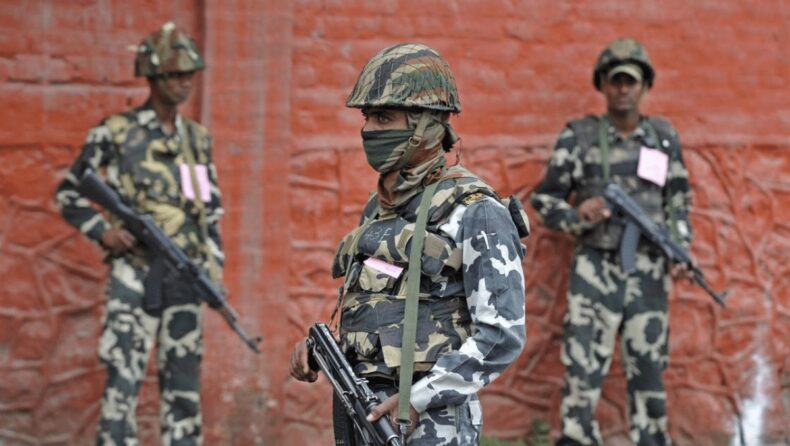General Officer Commanding-in-Chief of Eastern Command Kalita pointed out that violence in the Northeast’s insurgency-affected areas has considerably declined over the past months.
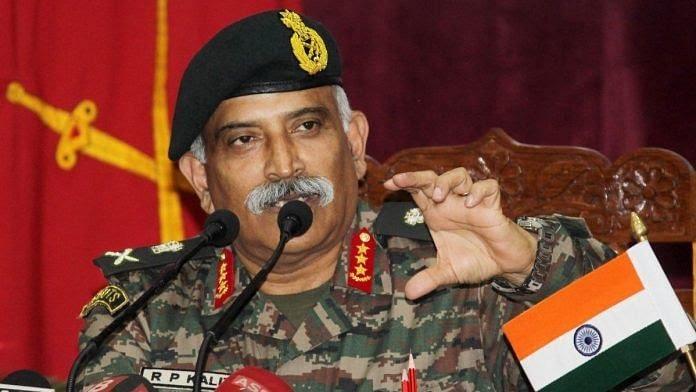
According to Lt General R P Kalita, commander of the Eastern Army, an increasing number of the AFSPA-affected districts will be denotified as soon as the violence parameters in those areas are achieved.
The Armed Forces (Special Power) Act (AFSPA) was denotified from some regions, according to Kalita, the General Officer Commanding-in-Chief of Eastern Command, who pointed out that there had been a significant decrease in violence in the past 9 months in the northeastern areas affected by the uprising.
He asserted that these areas had witnessed peace and improvement.
“This has been possible only due to the sacrifice that has been made by the Indian Armed forces in ensuring that violence parameters are brought down to an acceptable level.”
Eastern Army Commander Lt General R P Kalita
In response to a query concerning whether there are plans to remove AFSPA from regions in the northeast where it is still in effect, he noted that the situation is still dynamic.
He said, “As violence parameters come down … more and more areas will find denotification taking place”, adding that this will be dependent on the ability of the local police to maintain law and order, a decision that must be made by a state government in collaboration with the Centre.
From April 1 of 2022, the AFSPA was revoked in several areas around Nagaland, Assam, and Manipur.
https://indiankanoon.org/doc/137332467/
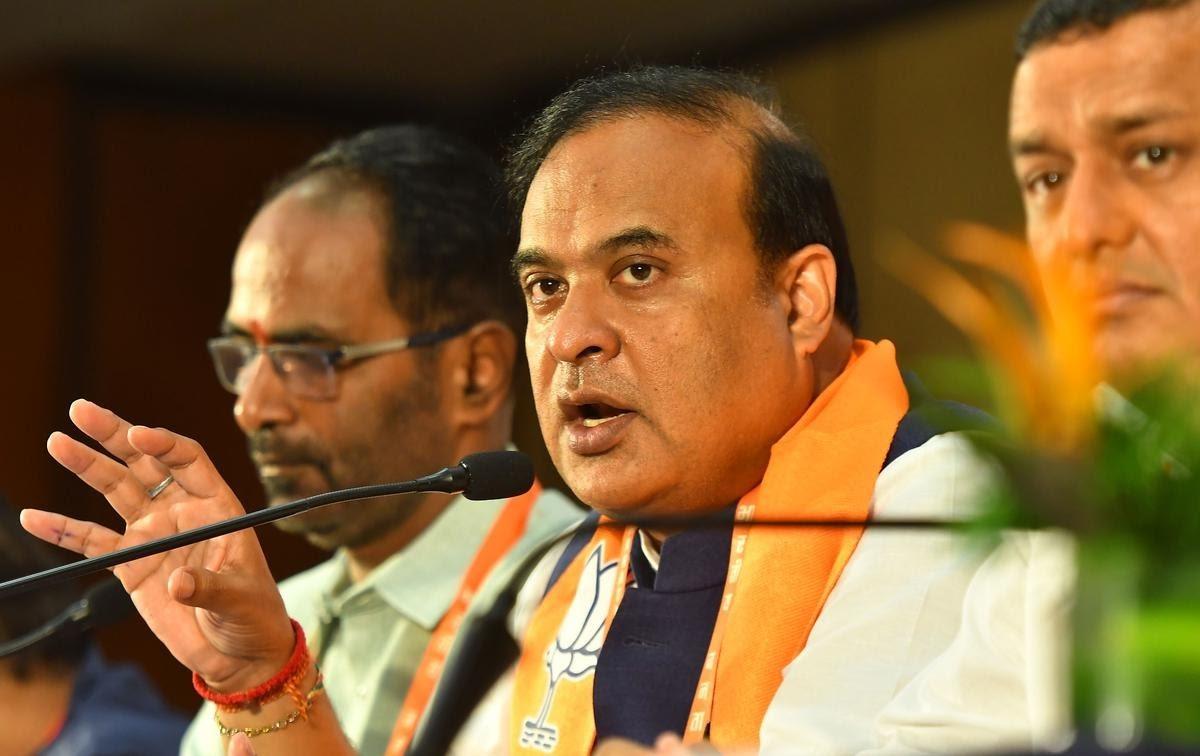
Earlier on Monday, Himanta Biswa Sarma, the Chief Minister of Assam, stated that his administration is thinking of removing the AFSPA from two additional places in the State.
The Armed Forces (Special Powers) Act of 1958 (AFSPA) was extended for a period of six months beginning on October 1, and the designation of “Disturbed Area” was maintained for the districts of Tinsukia, Dibrugarh, Charaideo, Sivasagar, Jorhat, Golaghat, Karbi Anglong, and Dima Hasao, as well as the Lakhipur sub-division of Cachar in the Barak valley.
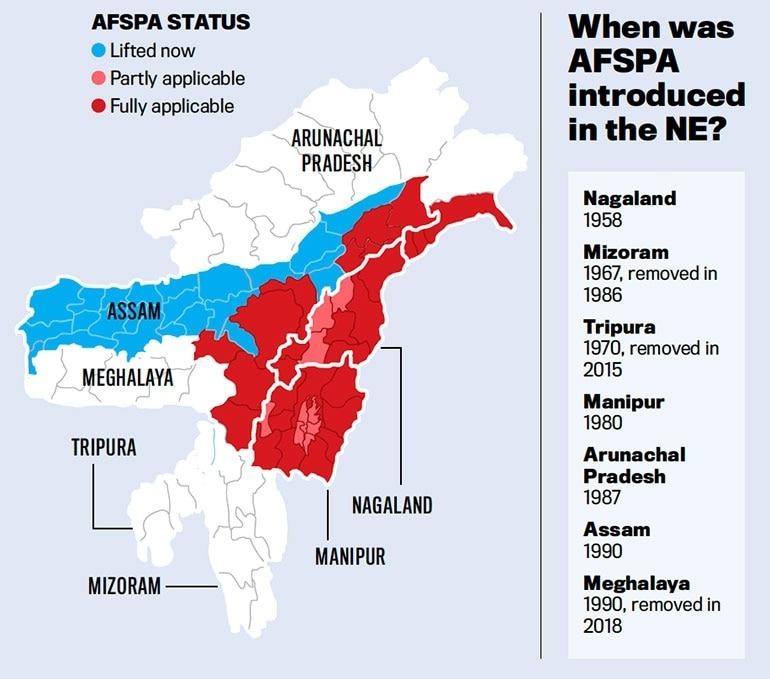
The highly contested law had been removed from the West Karbi Anglong area by the administration because things had “considerably improved” there.
The Armed Forces (Special Powers) Act of 1958 gives security forces protection from arrest and prosecution if they kill someone while conducting operations or making arrests without a warrant.
“Peace has returned to Assam and Northeast. Today, AFSPA is withdrawn from 65 per cent of areas of the state. In the future, we are considering withdrawing it from Lakhipur of Cachar and the entire Karbi Anglong district.”
Mr Sarma told.
Just 6 districts in Upper Assam would then still fall under the purview of the AFSPA after the removal of two more areas from its scope, he added.
Speaking at a gathering to provide funding for the rehabilitation of militants who had surrendered themselves, Mr Sarma said that certain districts in Tripura, Meghalaya, Arunachal Pradesh, Nagaland, and Manipur had also dropped their “Disturbed Area” label under the AFSPA.
“Assam has seen a lot of bloodshed. It is our duty to stop it and develop our state. We are planning to launch a big scheme to offer employment opportunities to the unemployed youths of the state.”
Mr. Sarma said.
In front of the state DGP and other top members of the Assam Police, Army, and paramilitary forces, the Chief Minister presented demand draughts to 318 former militants who had previously laid down their weapons.
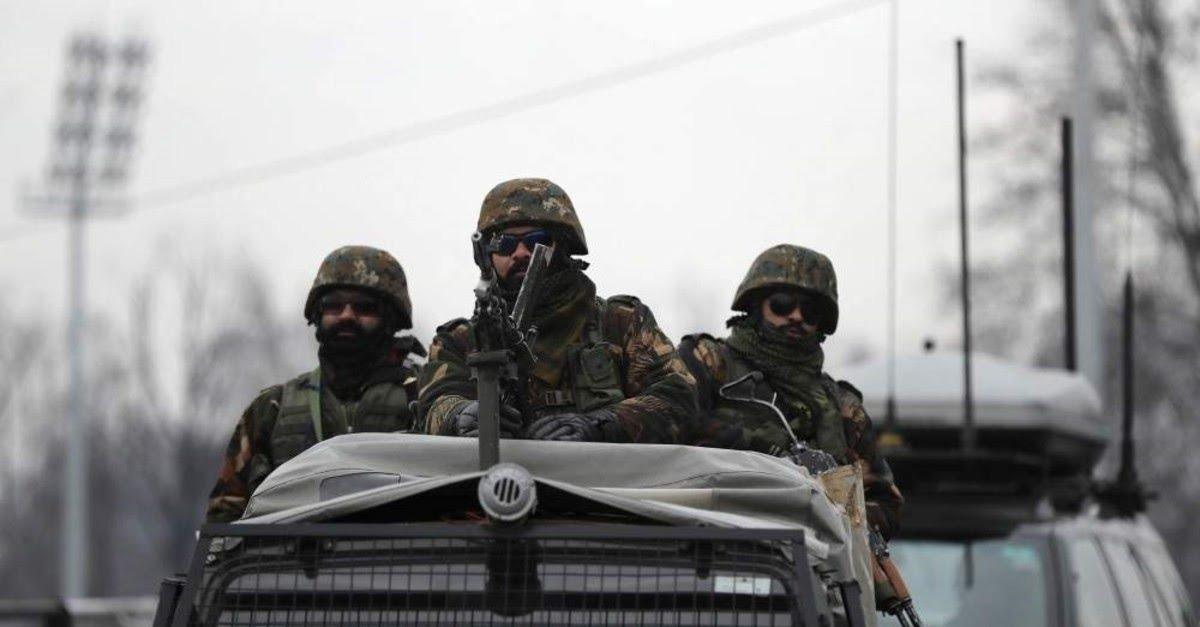
The surrendered cadres of the United Liberation Front of Asom (Independent), United Gorkha People’s Organization, Tiwa Liberation Army, Kuki Liberation Front, Dimasa National Liberation Army, and Kuki National Liberation Army were each given a one-time grant of 1.5 lakh (KNLA).
“In the last one-and-half years of our government, all militant organisations, except the ULFA(I), in Assam have returned to the mainstream. I again appeal to the ULFA(I) chief Paresh Barua to take the society forward by peace and not by bloodshed.”
Mr Sarma added.
Since he took control in May of last year, 6,780 cadres from various groups have disarmed, he told the crowd.







